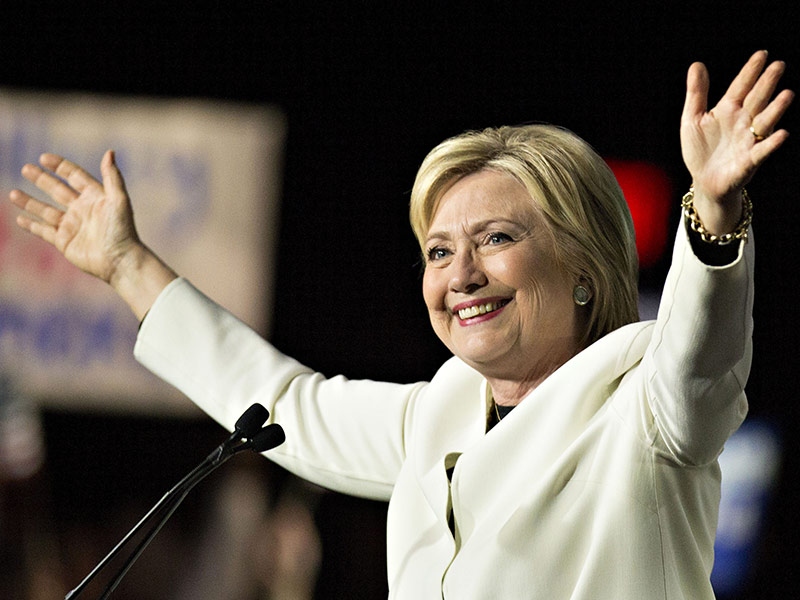After all the years congressional Republicans investigated, and GOP supporters chanted “lock her up” at political rallies, Donald Trump’s State Department has cleared Hillary Clinton.
The State Department probe of emails that were sent to the former secretary of state’s private computer server concluded there was no systemic or deliberate mishandling of classified information by department employees.
The report appears to represent a final and anticlimactic chapter in a controversy that overshadowed the 2016 presidential campaign and exposed Clinton to fierce criticism that she later cited as a major factor in her loss to President Trump.
In the end, State Department investigators found 38 current or former employees “culpable” of violating security procedures — none involving material that had been marked classified — in a review of roughly 33,000 emails that had been sent to or from the personal computer system Clinton used.
Overall, investigators said, “there was no persuasive evidence of systemic, deliberate mishandling of classified information.” The report cited “instances of classified information being inappropriately” transmitted, but noted that the vast majority of those scrutinized “were aware of security policies and did their best to implement them.”
The release comes as Trump continues to raise the Clinton email issue to attack Democrats, even as new evidence has emerged of apparent security lapses by senior officials in his own administration.
Diplomats involved in pressuring Ukraine to pursue investigations that would politically benefit Trump used private phones and texting apps to trade messages about their efforts, according to records released by leaders of the House impeachment inquiry.
The State Department probe focused on internal communications that were up to nine years old.
Dozens of former State employees were brought back in for questioning in recent months after being notified that emails they had sent years ago had been retroactively classified.
The renewed activity after a long stretch in which the investigation had seemed to go dormant sparked suspicion that the Trump administration was seeking to revive an issue that had been politically advantageous to Republicans.
One former official who was questioned described it as “a way to tarnish a whole bunch of Democratic foreign policy people.”
State Department officials denied any political agenda, saying the interviews were part of the final stages of an internal inquiry that the department was under pressure to complete this month. Among those applying pressure was Sen. Charles E. Grassley (R-Iowa), who had sent letters to the State Department’s Bureau of Diplomatic Security seeking updates.
There is no indication that any of those scrutinized will be sanctioned, but many received letters saying they were judged to have been involved in “valid” security incidents even if “not culpable” of a formal breach — an ambiguous status that some fear could complicate their abilities to return to government service.
The report does not identify those who were scrutinized, but the list included ambassadors and assistant secretaries of state responsible for U.S. policy in the Middle East, Europe and Central Asia.
Few had sent emails directly to Clinton, and instead had routed them to William Burns, who served as deputy secretary of state, or Jake Sullivan, the former director of policy planning. They then relayed many of the messages to Clinton’s private email, a system she said she used mainly out of convenience.
Clinton’s use of a private server, discovered by House Republicans as part of the probe of the deaths of U.S. diplomats and intelligence personnel in Benghazi, Libya, triggered overlapping investigations by Congress, the State Department and the FBI.
Then-FBI Director James B. Comey’s handling of the matter enraged Democrats. In July 2016, Comey took the extraordinary step of announcing there would be no charges filed against Clinton in the email probe, but accused her of being “extremely careless” in a news conference.
The bureau reopened the investigation in the final days of the 2016 race after discovering a laptop with Clinton emails as part of a separate case. Most were duplicates, and, again, there were no charges, but Comey’s decision to notify Congress revived the issue at a moment that Clinton has said was devastating to her campaign.
